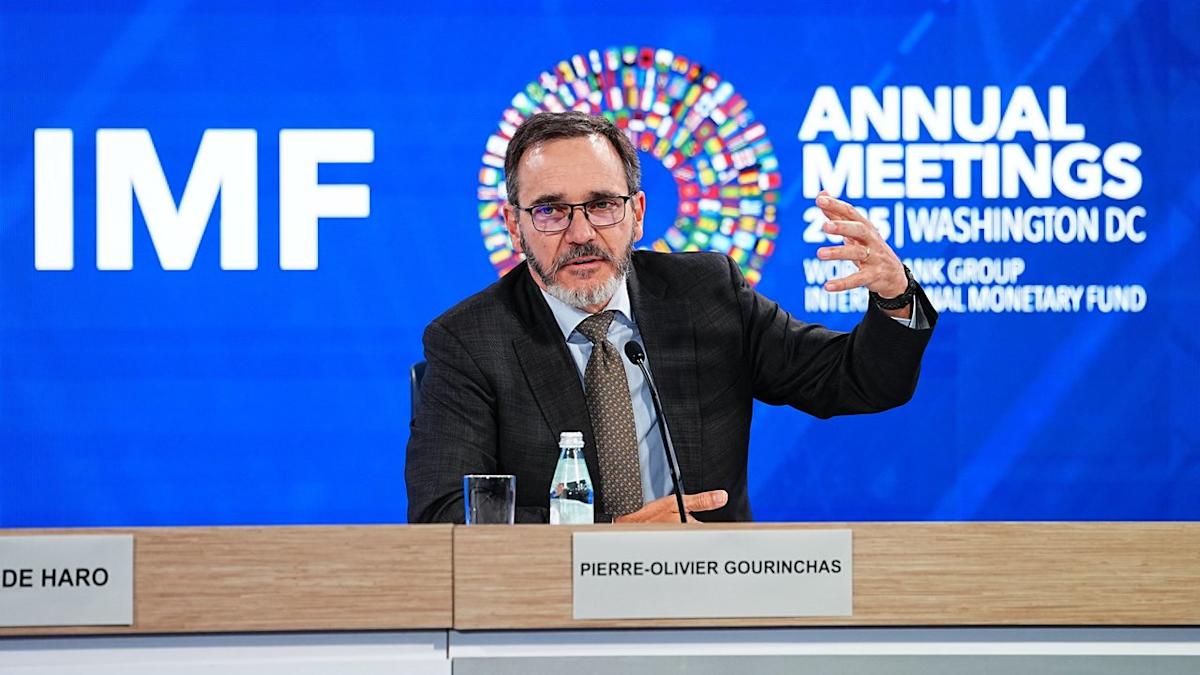Joseph Zeballos-Roig
2 min read
The International Monetary Fund said Tuesday there are “echoes” of the 1990s dot-com boom in the current explosion of AI-related spending by U.S. companies.
The IMF released its latest World Economic Outlook report surveying the global economic landscape as part of its fall meetings with the World Bank.
“There are echoes in the current tech investment surge of the dot-com boom of the late 1990s. It was the internet then. It is AI now,” said Pierre-Olivier Gourinchas, director of the IMF’s research department at a press conference.
Gourinchas added that surging valuations, booming investment and robust consumer consumption in the sector has kept U.S. economic growth on solid footing. However, the IMF official didn’t go as far as to forecast a stock market crash that ensued when the dot-com bubble burst.
“Whether this will be followed by a market correction, I don’t think anyone can tell for sure,” Gourinchas said.
The U.S. leads the global pack in AI spending. Tech firms like Meta, Amazon, Microsoft and Alphabet are spending hundreds of billions of dollars to build large data centers and fortify the infrastructure for supporting AI. That enormous pace of spending is juicing the stock market, which has reached new highs this year.
One estimate projects that AI capital expenditures will reach 2% of U.S. GDP in 2025. Without that level of spending, U.S. business investment would be trending downward compared to last year given the uncertainty around the Trump administration’s tariffs.
The staggering spending has fueled concerns among analysts about an AI bubble that will burst and drag down the U.S. economy with job losses and slower growth.
In the 1990s, investors bought into the promise of the internet and spent big on businesses seeking to adopt the new technology. When those promised financial gains failed to materialize, investors sold off shares in tech companies and caused a market meltdown. The S&P 500 shed 50% of its value in the two and a half years between March 2000 and October 2002.


